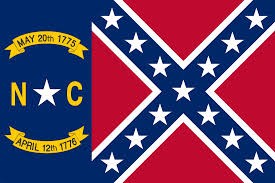Description of Stafford, Its People, and Confederates
This Union soldier from the 95th Regiment, N.Y.S.V., describes some of the people of Stafford as well as some of the terrible things he heard that North Carolina Confederate troops did while they were in the county.
AQUIA CREEK, VA, May 21 [1862].
I stole away from my squad last Sunday, after working an hour, and went to take a stroll through the country. I find that the poorer class of people around here are as rank abolitionists as ever [Horace] Greeley or [William Cullen] Bryant were. They state that the niggers injure white labor. The large slaveholders all had slaves; and when they had more work than slaves could do they hired the free niggers of the neighborhood in preference to whites — as they worked cheaper, and answered their purpose just as well. A poor white man could only get twenty-five cents per day and board. In fact, from the account that one man gave me, the poor whites are treated as bad as the negroes by the rich planters of the country.
The people, taking them altogether, as a class, are the most ignorant I have ever known. One of them — a man who is said to own a thousand acres of land — argued on me, the other day, that South Carolina was a part of Virginia State. The women, young and old, smoke or chew snuff. The most of them are dirty and slip-shod — although I have seen some exceptions, but “like angel’s visits, few and far between.”
The rich people are morose and unsocial. They charge exorbitant prices for the butter, milk, and eggs that the soldiers buy from them. They would show their teeth if they dared; but that time has passed, and it is only in their dark and ominous glances that you can read the hatred they dare not express in words.
I met one man, whose name is Butler. He is a poor man, and, of course, is a Unionist. The accounts he gave me of the atrocities committed by the rebel soldiers are dreadful. How General [Theophilus H.] Holmes allowed such deeds to be committed are beyond my comprehension…
He [Butler] has told me that the North Carolina troops, who were stationed here last fall and winter, met a young married woman in the woods near Aquia Village and outraged her person. Her name was Gallatroin. She was found next morning dead where they had left her; and yet the men who committed this barbarous act were never punished for it.
The same fellows also went to a free negro’s house and violated the persons of his wife and daughter, and shot him dead on the spot because he tried to prevent them. Another man has told me that they could not enter a house without trying to violate the females, or else grossly insulting them before they left. They also burned or scuttled all the boats belonging to the poor fishermen, before they left, and were going to put to the torch to the mill, and thus leave the people to starve, when the news arrived of our approach and prevented them from doing it.
The principal town in Stafford County is Stafford Court House. It is composed of a store, a court-house, and three or four private residences. There was a Dr. G.I. Conway who lived there. He was employed by the rebel authorities to hunt up the people of Union sentiments and report them. Two Northern men who had settled there and bought land from the planters were the first informed on. These men’s names were Maury. A party of Arkansas soldiers went to their houses in the night-time, dragged them from their beds, and after treating them to a ride on a rail, gave them their choice to either join the Confederate Army or else be shot on the spot. Of course they joined. They were sent away to Louisiana, and the man that sold their land to them had the unparalleled impudence to try and sell it again.
There are a good many soldiers, who have deserted from the enemy, or else pretend they have deserted, living in their own homes. I, for my own part, consider them spies, and think that the officers ought to look sharper after them. One of our captains was shot last week, and yet I saw him on Sunday sitting in the house of a man who was prevented from joining his regiment by the Rappahannock bridge being burned before he got there.
He is also employed to carry the cannon away from here. He has got a son in the rebel army, and is represented to me by the people around here as a professed Yankee-hater. He has got two or three daughters, and that is the reason, perhaps, that the officers go there. But, in my opinion, they should hold no intercourse with the traitors, who have tried to destroy the Union, that they are paid for supporting.
I have heard a very laughable account about [Gen. Daniel] Sickles’ Brigade. It seems that part of it went to Stafford Court House. They wanted tobacco from the store-keeper Morgan; he refused them. They took the tobacco by force, and fetched the old rascal out about half a mile from his house, and compelled him to run double-quick back again, at the point of the bayonet.
Troops are pouring in every day. A Maine Battery passed through here yesterday. The dock is loaded with ammunition and provisions. We are expecting to leave every day for Fredericksburg, but they still find something to detain us.
I send you a list of names polled in this county to know whether the action of the convention that was held in this State 13th of Feb 1861, should be submitted to the people for ratification or rejection. I have some more very curious papers that I will send you.
My letters, I know, are very faulty, but when a man has to work from sunrise to sunset, and then go to bed at 9 P.M., it will be seen that he has no time to spare, and anything he writes must be done in a hurry. T.O.M.

